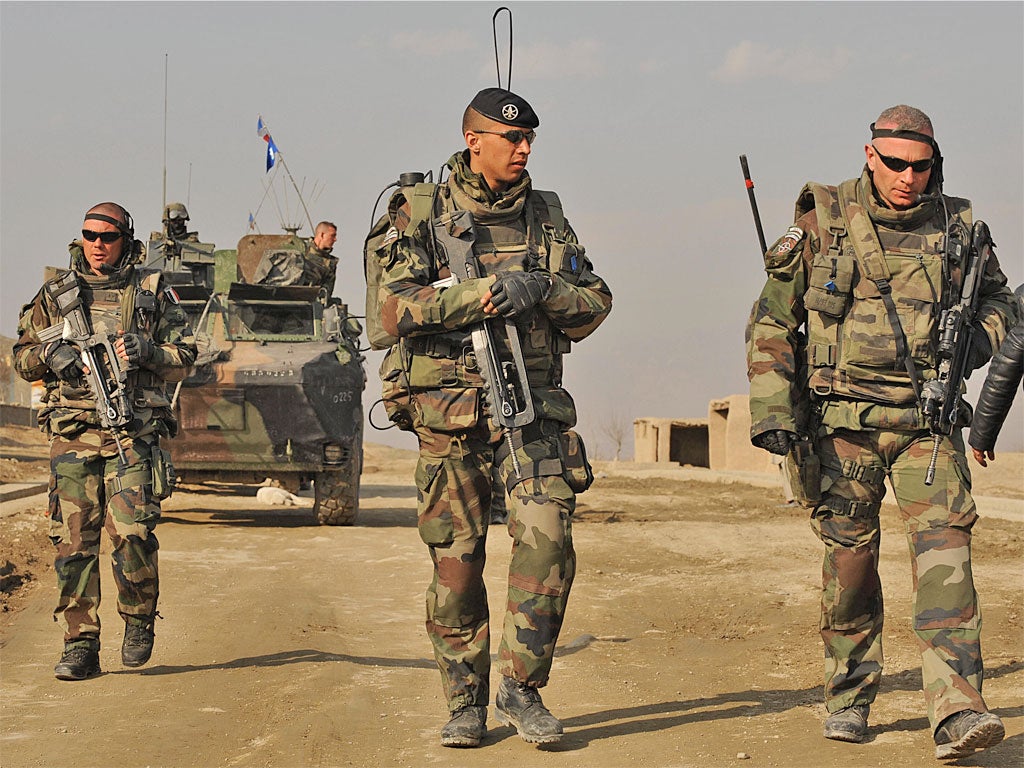French aggression drove extremists out. Then one brought the war home
It was the first country to target Muslim fundamentalists – but that just raised their anger

Mohammed Merah's killing spree is a blow to a security establishment that claims to have kept metropolitan France free from major terrorism. While racial and religious tensions had led to outbreaks of violent riots, there had been no attacks in Paris of the scale of London, Madrid or New York on 9/11.
Following a spate of bombings by north African groups in the 1980s and 1990s, mainly the work of the GIA (Armed Islamist Group of Algeria) the French authorities were the first in western Europe to focus on Muslim extremist violence at a time the British were busy with Irish paramilitaries and the Spanish with Basque separatists.
This was a factor that drove many Islamist groups to move their bases in Paris to London, where they were largely left alone by the police and the security service. It was believed this would make them easier to infiltrate and also that the jihadists would not blow up the country where they lived.
The attacks on London's transport network in July 2007 proved this wrong; something the government in Paris and several allied countries, including the US, had warned would happen.
France, meanwhile, may have gained a respite from being a target because, unlike the UK and Spain, it had refused to join the American-led invasion of Iraq – the single most potent trigger for radicalisation of young Muslims in the UK, according to Eliza Manningham-Buller, who was in charge of MI5 at the time.
But the hiatus for France has not lasted and France, especially under Nicolas Sarkozy, has taken an increasingly aggressive stance on counter-terrorism. Figures released last year by Europol, the European Police Agency, show that France was responsible for more than half of the arrests of "people linked to Islamist terrorism" – 94 out of 179. This, declared the French government, made it "Europe's leading bastion against this threat". Alain Bauer, a criminologist who had advised the authorities on terrorist threats, stressed that the figures showed, "the French preventative method works". Others are less sanguine. Tough laws, deemed by some Muslims to be an attack on their faith, passed by the French parliament, and the deployment of French troops to Afghanistan, may have contributed to the return to the extremist threat, warned Bernard Squarcini, the head of Direction Centrale du Renseignement Intérieur (DCRI), the internal intelligence service.
"The red lights are flashing for a possible attack. France's role in Afghanistan, its foreign policy and debate over the law banning the burkha have increased the risk. On average two plots were being foiled each year, but one day, we're going to get hit," he said last year.
French nationals outside the country were already on the firing line. A number had been kidnapped in places like Iraq and Afghanistan. Six were held in Niger, and when Michel Germaneau, a 78-year-old aid worker, was killed, the French government sent troops to the west African country, three members of which were allegedly shot by Merah.
French troops have been working with local soldiers and police in north and west Africa against AQM (al-Qa'ida in the Maghreb) originally founded by Ayman al-Zawahiri, who subsequently became the head of al-Qa'ida after the death of Osama bin Laden. Other French personnel, mainly commandos and special forces, have been active in Somalia and the Yemen.
The French security service had also begun to notice the rebirth of home-grown hardline Muslim groups, among them Forsane Alizza (Knights of Pride) with presence in Paris and Limoges, which 23-year-old Merah reportedly joined. The group, proscribed earlier this year, says its prime aim is to "combat Islamophobia" and "protect the honour of Muslim women".
Merah appears to have brought the war home. Robert Emerson, a security analyst, said: "We don't know yet whether just a few people were involved in this or an organised group. Either way it shows there is scope in France for further attacks."
Join our commenting forum
Join thought-provoking conversations, follow other Independent readers and see their replies
Comments